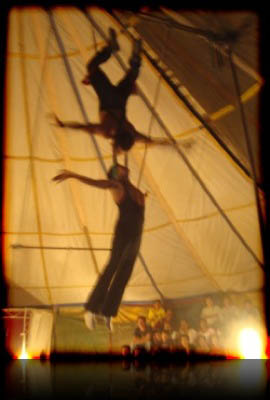The Wages of Non-Blackness: Contemporary Immigrant Rights and Discourses of Character, Productivity, and Value
DOI:
https://doi.org/10.25071/1913-5874/37362Abstract
Drawing from W.E.B. Du Bois’ concept of the psychological wage of whiteness, this article explores how contemporary rhetoric promoted by immigrant rights advocates in the United States valorizes non-white immigrant workers in relationship to African Americans. Specifically, I examine moralized claims regarding immigrants’ character, productivity, and value as well as their contributions to the U.S. and global economy. I emphasize how this discourse echoes and draws upon managerial and capitalist perspectives of labor as well as anti-Black rhetoric regarding African Americans as lacking a work ethic, militant, xenophobic, and costly to society. Finally, I briefly consider whether the wage of non-Blackness differs from the wage of whiteness as well as the possibility of an ethical immigrant rights discourse.
References
Associated Press. “At Tax Time, Illegal Immigrants are Paying Too.” MSNBC.com, 4 Oct. 2008. Web. 10 Jan. 2011.
Bennhold, Katrin. “From Afar, Moneymaker and Mother.” New York Times. NYTimes.com, 7 March 2011. Web. 7 March 2011.
Brotherton, David, C., and Philip Kretsedemas, eds. Keeping Out the Other: A Critical Introduction to Immigration Enforcement Today. New York: Columbia University Press, 2008. Print.
Chang, Grace. Disposable Domestics: Immigrant Women Workers in the Global Economy. Cambridge, MA: South End Press, 2000. Print.
Domestic Workers United. Domestic Workers United website. Web. 15 Feb. 2011.
Du Bois, W.E.B. Black Reconstruction in America 1860-1880. 1935, 1962. New York: Atheneum, 1992. Print.
Go, Julian. “Racism” and Colonialism: Meanings of Difference and Ruling Practices in America’s Pacific Empire.” Qualitative Sociology 27.1 (2004): 35-58. Print.
Hartman, Saidiya. Lose your mother: A journey along the Atlantic slave route. New York: Farrar, Straus and Giroux, 2007. Print.
Kim, Nadia Y. “A Return to More Blatant Class and ‘Race’ Bias in U.S. Immigration Policy?” Du Bois Review 4.2 (2007): 469-77. Print.
Marable, Manning, and Leith Mullings, eds. Let Nobody Turn Us Around: An African American Anthology. 2nd ed. Lanham, MD: Rowman & Littlefield, 2009. Print.
Moss, Philip, and Charles Tilly. “‘Soft skills’ and Race: An Investigation of Black Men’s Employment Problems.” Work and Occupations 23.3 (1996): 252-76. Print.
Navarrette, Ruben, Jr. “The Wrong Color in New Orleans?” Chicago Tribune. ChicagoTribune.com, 21 Oct. 2005. Web. 10 Jan. 2011.
Neckerman, Kathryn M., and Joleen Kirschenman. “Hiring Strategies, Racial Bias, and Inner-City Workers.” Social Problems 38.4 (1991): 433-47. Print.
Park, Edward J.W. “Racial Ideology and Hiring Decisions in Silicon Valley.” Qualitative Sociology 22.3 (1999): 223-33. Print.
Poo, Ai-Jen. “Unregulated Economy in NYC, Ai-jen Poo.” Labor Research Association, n.d. Web. 10 Feb. 2011
Ransby, Barbara. “Katrina, Black Women, and the Deadly Discourse on Black Poverty in America.” Du Bois Review 3.1 (2006): 215-22. Print.
Sandoval, Claudia. “Citizenship and the Barriers to Black and Latino Coalitions in Chicago.” NACLA, Nov./Dec. 2010. Web. 25 Feb. 2011.
Sexton, Jared. “The Obscurity of Black Suffering.” What Lies Beneath: Katrina, Race, and the State of the Nation. Ed. South End Press Collective. Cambridge, MA: South End Press, 2007. 120-32. Print.
Thomas, Ward F. “The Meaning of Race to Employers: A Dynamic Qualitative Perspective.” The Sociological Quarterly 44.2 (2003): 227-42. Print.
Wilderson, Frank, III. “Gramsci’s Black Marx: Whither the Slave in Civil Society?” Social Identities 9.2 (2003): 225-40. Print.
Wilson, William Julius. When Work Disappears: The World of the New Urban Poor. 1996. New York: Alfred A. Knopf, 1997. Print.





